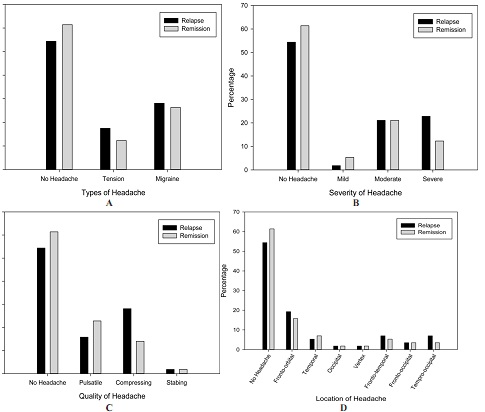
Mansoureh Togha
Tehran University of Medical Sciences, Iran
Title: Headache in relapse and remission phases of multiple sclerosis: A case-control study
Biography
Biography: Mansoureh Togha
Abstract
Statement of the Problem: Characterization of headaches and delineating possible relationships with Multiple Slerorosis(MS)-related determinants can ultimately circumvent headaches. Thus, in this study, we attempted to assess the prevalence of headaches during relapses and remissions of relapsing-remitting MS(RRMS)patients and denote the possible interrelations between headaches and types of MS exacerbations.Methodology & Theoretical Orientation: In a prospective case-control study, 65 RRMS patients and 65 healthy controls were recruited and asked about characteristics and co-symptoms of headaches they experienced in the preceding week and usage of disease modifying drugs and types of MS attacks were also inquired. The same questions were asked from the same patients 3 months later in a follow-up visit. Findings:A total of 57patients and 57controls were included in the final analyses. In total,26(45.6%) patients in relapse, 18(27.7%) controls, and 22(38.6%) patients in remission reported headaches and only significant difference existed between relapse patients and controls(P = 0.036). The headache prevalence was higher in patients in relapse phase having MS<3years compared to relapse patients with>3years of MS (68vs. 28.1%;P = 0.004). Other variables of interest did not differ among the three groups. Conclusion &Significance:The suggested explanation for migraine-MS interrelationship is that migraine, especially migraine with aura, switches on particular matrix metalloproteinases that in turn destruct the blood-brain barrier and render myelin autoantigens vulnerable to autoreactive T-cells present in the bloodstream and this process can ultimately culminate in MS. Furthermore, migraine episodes and MS attacks apparently share common cytokine profiles. According to our study at the earlier stages of MS, headaches were more common during attacks which may be due to active immune process in that stage. Common genetic and environmental determinants present in MS, and headaches are also on the agenda of headache-MS association. In summary, The RRMS patients in relapse phase suffer from headaches more than healthy people do.

Figure 1. Features of headache attacks during relapse and remission phases among patients with relapsing-remitting multiple sclerosis, (A) Types of headache, (B) severity of headache, (C) quality of headache, (D) location of headache

